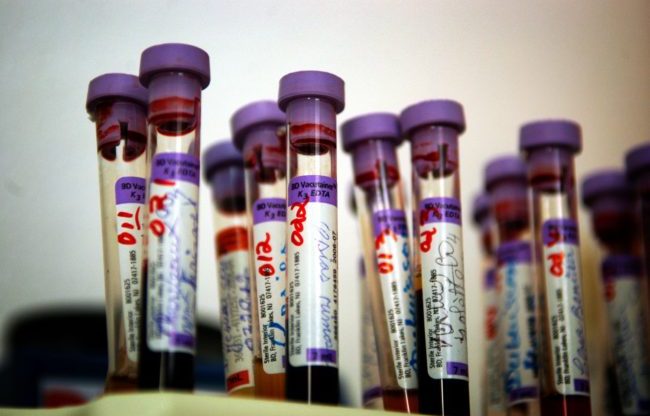Study confirms HIV-positive people can pose zero transmission risk if undergoing treatment

HIV testing should become part of routine healthcare, the HIV Commission says. (Getty)
A landmark HIV study has found that people living with HIV who are undergoing successful treatment pose a near-zero transmission risk.
The landmark PARTNER study was published in the July edition of the Journal of the American Medical Association.
It monitored more than 900 mixed-status serodiscordant couples – where one partner is HIV-negative, and the other is living with HIV and undergoing successful antiretroviral (ART) therapy.
The study monitored the couples over an extended period, and across more than 58,000 instances of condomless sex among the couples (548 heterosexual, 340 gay), the researchers found zero cases of HIV transmission from one partner to the other.
It notes: “Although these results cannot directly provide an answer to the question of whether it is safe for serodifferent couples to practice condomless sex, this study provides informative data for couples to base their personal acceptability of risk on.
“This study provides the first estimate to our knowledge of HIV transmission risk through condomless anal sex in which the HIV-positive partner is taking ART with suppressed plasma HIV viral load and also provides an estimate of the absolute rate of HIV transmission through condomless heterosexual sex. The estimate of the overall transmission rate, and the transmission rate for anal sex, was zero.
The study will hopefully go a long way to busting stigma on HIV – by showing that people living with HIV can pose virtually zero transmission risk if they abide by their ART drug schedule and undergo routine medical check-ups.
Mary Beth Maxwell, Human Rights Campaign: Senior Vice President for Programs, Research, and Training, said: “The results of this important study provide further proof that people living with HIV are not a threat to anyone.
“It is clear that getting tested, knowing your status, and accessing HIV treatment can help end this epidemic by reducing the spread of HIV.
“Not only do these findings underscore the continued need for universal access to affordable medications, but they also also cast further doubt on the utility of HIV criminalisation laws.
“Such laws run counter to public health by perpetuating stigma and discouraging people from getting tested or treated for HIV in the first place.”

